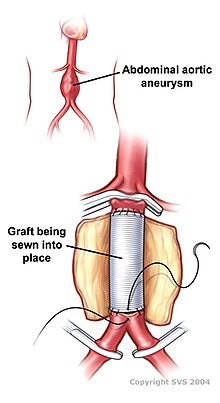

: Admin : 2021-12-16
What exactly is vascular surgery?
Vascular surgery encompasses a wide range of treatments used to treat injuries and abnormalities of the arteries, veins, and lymph vessels. Vascular surgical treatments are conducted on the aorta, as well as arteries and veins in the neck, belly, pelvis, legs, and arms, but not on the heart or brain. Cardiothoracic surgeons operate on the coronary arteries and those that leave and enter the heart, while neurosurgeons (and neurovascular) surgeons operate on intracranial vessels.
Types of vascular surgery
Vascular operations include the following:
Peripheral vascular bypass surgery
Avascular surgeon may choose between open or endovascular surgery depending on the treatment and the patient. Open surgery is more intrusive and usually carries additional dangers for the patient, particularly if the patient has existing health issues. The surgeon, on the other hand, has a clear view of the operating region. Endovascular surgery, also known as endovascular intervention, is often conducted using a catheter and under X-ray supervision. It is less intrusive and has a shorter recovery period than open surgery.
What is the purpose of vascular surgery?
If your disease cannot be addressed with medicine or lifestyle modifications, you may need vascular surgery. If the problem is in its early stages, some vascular surgeons may advise watch-and-wait monitoring in conjunction with certain lifestyle changes, such as stopping smoking or managing diabetes. If your doctor believes surgery is essential, be sure you understand all of the risks and benefits.
Some of the problems that may need vascular surgery are as follows:
Who performs vascular surgery?
Vascular surgeons undertake the majority of procedures involving blood and lymphatic vessels, with the exception of those affecting the heart (the coronary arteries) and the brain (intracranial arteries and veins). Patients are cared for by these professionals beginning with examination and diagnosis and continuing with surgical treatment and long-term monitoring. Vascular surgeons will choose the best course of therapy for the patient based on the problem and the stage at which it is detected.
Vascular surgery is also performed by general surgeons and critical care (trauma) surgeons. Prior to 2006, vascular surgery had a separate training programme from general surgery. Doctors may now pursue board certification in vascular surgery on their own. Regardless of the route, the essential abilities and competence are the same.
What is the procedure for vascular surgery?
Surgeons do vascular surgery using both open and endovascular procedures, or a mix of the two. Endovascular surgery provides several benefits when it is feasible, including a faster recovery period and a lower risk of problems since it requires fewer incisions—sometimes only one incision—to reach the treatment region. Not all vascular illnesses can be treated endovascularly, especially if the patient has advanced disease. Open surgery with a bigger incision to reach the treatment region is a more conventional method to vascular surgery that is often needed to make the necessary repairs or remove unhealthy tissue.
Surgeons execute a sophisticated endovascular repair in certain circumstances when invasive open surgery is not required but ordinary endovascular surgery is not an option for the patient. These procedures are not accessible at every hospital.
If at all feasible, inquire well in advance of surgery about the precise technique and surgical approach—open or endovascular—that your surgeon prefers, as well as why. Request as much data and information as you need, including the advantages and disadvantages. When you know your choices and what to anticipate from your surgery, it is simpler to prepare and plan for recovery.
What to anticipate with open vascular surgery?
Endovascular surgery: What to Expect
What are the dangers and problems of vascular surgery?
Every kind of surgery has some level of risk and consequence. Endovascular surgery typically has fewer major problems than open surgery. Discuss the risks and possible problems of the operation with your physician. Open vascular surgery may result in problems.
In general, surgical complications include:
When difficulties emerge, they often involve the following:
You may lower your chance of several issues by doing the following:
Notifying your healthcare professionals if you have an allergy to anaesthetics or contrast dyes.
After your doctor's instructions for physical exercise and wound care following surgery
Notifying your doctor right away if you have any concerns, such as bleeding, infection, fever, or discomfort arise.
Taking your medications exactly as prescribed
What should I do to prepare for vascular surgery?
In preparation for surgery, your doctor will give you specific instructions to follow. Preparations may include the following:
Stopping some of your drugs, such as blood thinners, is a possibility.
Eat or drink nothing for at least eight hours before surgery.
One week before surgery, avoid taking aspirin.
Shaving the surgical spot at least two days before the procedure.
What can I anticipate after my vascular surgery?
It is simpler to plan and prepare for a good recovery when you know what to anticipate. In the days, weeks, and months after your operation, be sure to follow up with your doctor as planned.
How much time will it take to recover?
After open vascular surgery, you can anticipate spending five to ten days in the hospital and three months recovering at home. Maintain a clean and dry surgery area—you may require sponge baths instead of regular showers for a time. You will most likely be hurting, so talk to your doctor about pain relievers. For a week or two, you may need assistance with domestic work and other everyday activities. Do not drive until you have received permission from your doctor.
After endovascular surgery, you will spend two to three days in the hospital and four to six weeks at home recovering before returning to regular activities. You may have fatigue or loss of appetite for up to two weeks after surgery.
Following graft surgery to repair an aneurysm or other vascular damage, you will see your doctor in two weeks. Imaging studies will be performed to ensure that the graft is functioning properly.
vascular vascular suregry varicoseveins veintreatment
No Comments